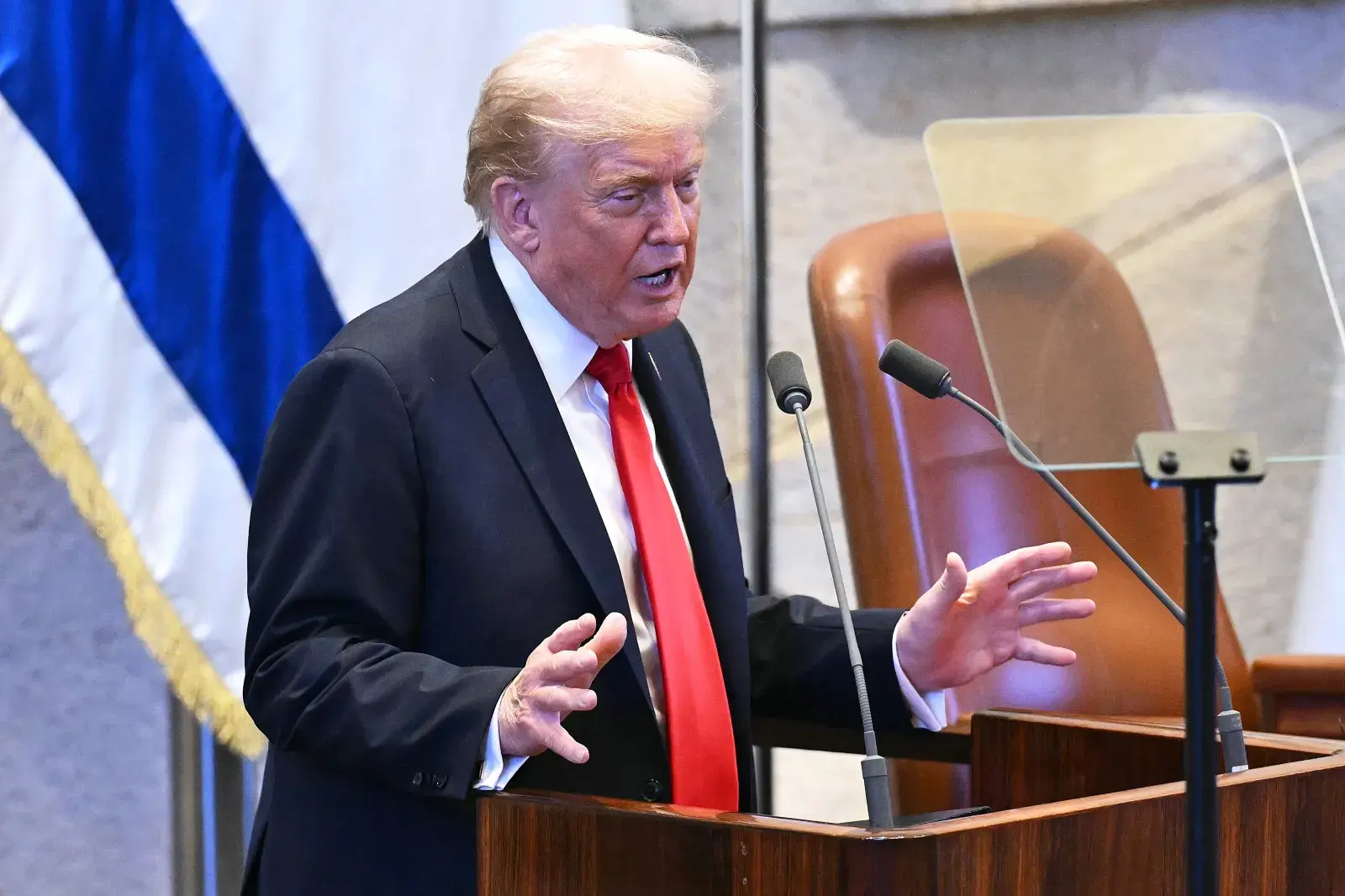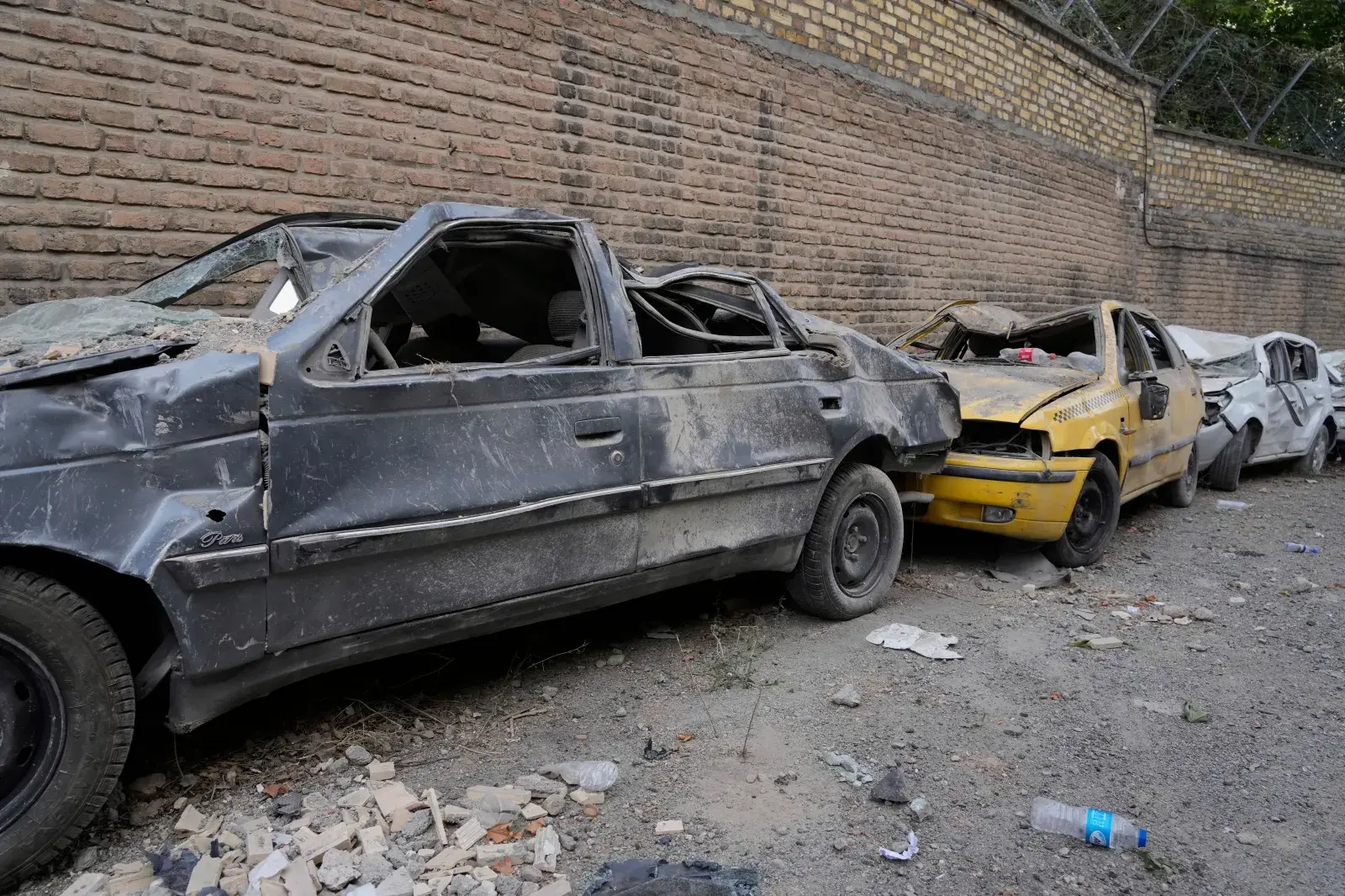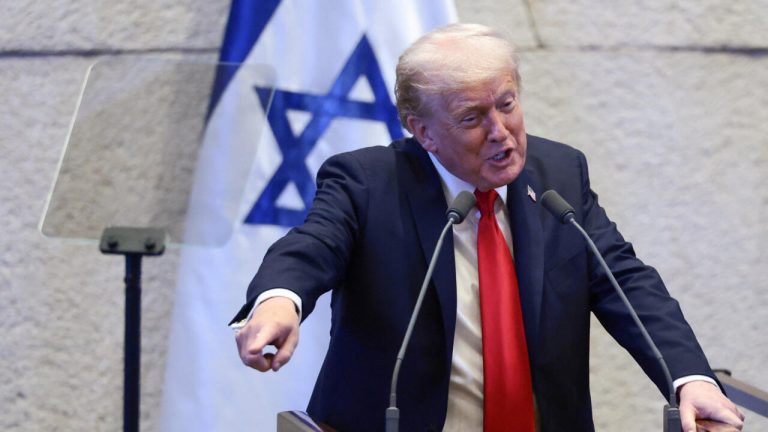U.S. President Donald Trump has said that Iran is “tired” of war following June’s 12-day conflict between Israel and Iran, which included U.S. strikes on nuclear facilities. Speaking at the Knesset, Israel’s parliament, on Monday, Trump said Washington is ready for peace, signaling a potential diplomatic shift after years of tensions.
“Iran, we are ready when you are and it will be the best decision Iran has ever made, and it’s gonna happen,” Trump said, emphasizing that peace would benefit both nations.
Newsweek has contacted the State Department and Iran’s Foreign Ministry via email for comment.
Why It Matters
Trump’s visit to the Middle East comes at a moment when the region remains fragile amid the Gaza conflict, the release of hostages, and recent U.S.-Israeli strikes on Iran. His remarks signal an attempt to convert military pressure into leverage, showing Tehran that continued escalation carries costs, while opening a possible path for diplomacy. The strikes and regional dynamics have left Iran weakened and more isolated, underlining the limits of its influence in the Middle East.
The trip also reinforces U.S. commitment to Israel and regional allies, underscoring Washington’s role in shaping security, deterring aggression, and influencing the balance of power across the region.

President Donald Trump speaks at the Knesset, Israel’s parliament, October 13, 2025, in Jerusalem. | Saul Loeb/AP Photo
What To Know
During the 12-day war, Israel’s surprise airstrikes targeted Iranian positions, while the U.S. struck three major nuclear facilities at Natanz, Fordow, and Isfahan. Trump described the operation as a decisive move: “We dropped 14 bombs on Iran’s nuclear facilities, which has been confirmed to have obliterated those facilities.” He credited the campaign with preventing Iran from acquiring nuclear weapons and reducing the broader threat to Israel and its neighbors.
At the same time, he suggested a potential diplomatic path, saying, “It would be great if we made a peace deal with them, wouldn’t it be nice, I think they want to, I think they’re tired,” signaling that Iran’s weakened position could create openings for negotiation.

Damaged vehicles sit at the Evin prison in Tehran, Iran, on June 29, 2025, following an Israeli strike. | Vahid Salemi/AP Photo
Israel’s Role
Praising Israeli Prime Minister Benjamin Netanyahu, Trump said: “Great job and my people loved working with you. Many of Iran’s top terrorists, including nuclear scientists and commanders, have been extinguished from this earth.” He credited the coordinated operations for weakening Iran-backed forces across the region and shifting the balance of power in favor of Israel and its allies. Trump also highlighted the release of hostages from Gaza, held by Hamas for two years, as evidence of U.S.-Israeli cooperation and broader regional stabilization.
Peace Summit
Monday’s peace summit in Egypt, co-chaired by Trump and Egyptian President Abdel Fattah el-Sisi, will include leaders from more than 20 countries and aims to solidify the Gaza ceasefire, support reconstruction, and promote broader regional peace. Iran declined the invitation, with Foreign Minister Abbas Araghchi writing on X that Tehran would not engage with nations that “attacked the Iranian People and continue to threaten and sanction us,” highlighting the challenges of converting military leverage into diplomatic progress.
What People Are Saying
U.S. President Donald Trump: “Iran, we are ready when you are and it will be the best decision Iran has ever made, and it’s gonna happen.”
Iranian Foreign Minister Abbas Araghchi: “While favoring diplomatic engagement, neither President [Masoud] Pezeshkian nor I can engage with counterparts who have attacked the Iranian People and continue to threaten and sanction us.”
What Happens Next
After securing a ceasefire in Israel’s war in Gaza, Trump is using his strengthened influence to consolidate regional alliances and expand the 2020 Abraham Accords, which normalized relations between Israel and several Arab states.
Iran’s nuclear and military capabilities have been significantly weakened, and its refusal to attend the Egypt summit further isolates it from broader regional diplomacy. The U.S. aims to turn this into cooperation among Arab states and Israel, signaling that sustained strategic pressure could eventually create openings for negotiations, despite Tehran’s current stance.



